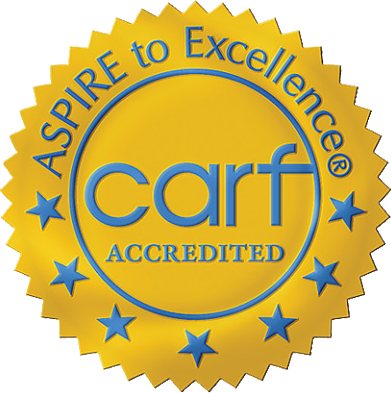Program Scope of Services - Psychiatric Rehabilitation Program (PRP)
Population(s) served:
Freedom provides care to Adults, children, ages 5 and up and adolescents who reside in Maryland.
Settings:
Outpatient - office, community and in-home. If our clients need more intensive care like a hospital medical unit, a nursing home, an adult medical daycare center, and emergency rooms- we cannot deliver services in those locations.
Hours of services:
7:30 AM to 5:30 PM
After hours for crisis and scheduled appointments only
Days of services:
Monday – Friday
Weekends for crisis and scheduled appointments only
Frequency of services:
As scheduled as needed basis
Payer sources:
Medicaid
Fees:
Current approved Medicaid and Medicare fee schedules for Maryland
Referral sources:
Must be referred by a licensed mental health professional who is actively involved in the participant’s treatment.
Specific services offered:
All services are rendered by trained qualified independent contractors deemed competent by the program to provide services that may include a review of somatic status, a rehabilitation assessment in order to develop an Individual Rehabilitation Plan initially and every 6 months thereafter for adults (3 months thereafter for minors).
Rehabilitation and Recovery Activities may include: Self-care skills, including personal hygiene, grooming, nutrition, dietary planning, food preparation, and self-administration of medication; Social skills, including community integration activities, developing natural supports, and developing linkages with and supporting the individual's participation in community activities.
Efforts to support Independent living skills, including: Skills necessary for housing stability; Community awareness; Mobility and transportation skills; Money management; Accessing available entitlements and resources; Supporting the individual to obtain and retain employment; as well as Wellness self-management; and Activities that support the individual's cultural interests.
Health promotion and training such as activities encouraging proper nutrition and exercise. Promotion of individual wellness self-management and recovery.
On call and emergency response in the event of a mental health crisis. Linkage with an individual in a psychiatric inpatient facility or detention center.
Entry criteria:
Must demonstrate motivation for treatment and present with symptoms of mental illness. Services are available to participants with Medicaid, certain dually eligible Medicare recipients, and uninsured eligible participants. If a person is uninsured, the program may assist with applying for Medicaid and register the person to receive temporary insurance coverage, to support having services be preauthorized, as needed, by the Administration's administrative services organization (ASO).
The individual needs program services to enable the individual to improve or restore independent living and social skills necessary to support the individual's: Recovery; Ability to make informed decisions and choices; and Participation in community life.
The individual meets medical necessity criteria for PRP services and have severe and persistent mental illness priority population diagnosis.
Transition / Exit criteria:
Discharge/transition planning occurs throughout all phases of the program. The person served has met discharge/transition criteria when the goals of the individual plan are achieved and referral to support services is completed, when appropriate. Additionally, discharge may occur if the person no longer attends regularly or chooses not to actively participate in the program.
Description of the program:
PRP programs are provided in a clinic setting. A wide range of services are organized within a comprehensive therapeutic environment that includes screening and assessment, diagnostic determination, individual and family counseling, psychiatric consultations, medication management, crisis intervention, group counseling, client advocacy, and referral to community resources. Services additionally include consultation with family and/or professional care providers.
Clients are assigned to licensed clinicians who assist in individual planning and care.
Philosophy of the program:
PRP programs to assist persons with developing and maintaining coping skills that facilitate adjustment and integration within their living environments and community. Clients and family members are empowered to make decisions about their care with the expected outcome of an increased quality of life.
Services are designed and implemented to: support the recovery, health, or well-being of the persons or families served; enhance the quality of life of the persons served; reduce symptoms or needs and build resilience; restore and/or improve functioning; support the integration of the persons served into the community.
Program goals:
The overall goal of PRP programs is to increase the quality of life through the provision of specialized outpatient mental health services and community integration. Specific areas of focus may include: Recovery, Vocation/Education, Parenting, Relationships, Spirituality, Coping Skills, Anger Management, Grief and Loss. PRP programs seek to achieve the following specific objectives: To improve mood and affect in daily living; To improve social, familial, and social adjustment and integration; To reduce the need for a higher level of care.

